Coronavirus (COVID-19) vaccineThe coronavirus (COVID-19) vaccine is safe and effective. It gives you the best protection against coronavirus.
|
Coronavirus (COVID-19) vaccinesThe coronavirus (COVID-19) vaccines are safe and effective. They give you the best protection against COVID-19. COVID-19 booster dose A booster dose of the COVID-19 vaccine is available for everyone aged 16 and over. Who can get a COVID-19 vaccineEveryone aged 5 and over can get a 1st and 2nd dose of the vaccine. How to get your COVID-19 vaccineIf you're aged 12 or over you can: |
Booking your 2nd or booster dosePeople aged 5 or over are eligible for a 2nd dose. People aged 18 or over should have their 2nd dose from 8 weeks after their 1st dose and a booster dose 91 days after the second dose. People aged 16 or 17 should have their 2nd dose from 12 weeks after their 1st dose and a booster dose 91 days after the second dose.
|
About the types of vaccineIn the UK, there are 3 types of COVID-19 vaccine to be used that have been approved. They require 3 doses to provide the best protection. Which vaccine will I get?We’re only using Pfizer at Upton Surgery. You might be offered a different vaccine at massive vaccination centres. You cannot usually choose which vaccine you have. When you book, you'll only be offered appointments for vaccines that are suitable for you. Most people can have any of the COVID-19 vaccines, but some people are only offered certain vaccines. For example: - if you're pregnant or under 40 you'll usually be offered appointments for the Pfizer/BioNTech or Moderna vaccines
- if you're under 18, you'll only be offered the Pfizer/BioNTech vaccine
You should have the same vaccine for both doses, unless you had serious side effects (such as a serious allergic reaction) after your 1st dose. Will the vaccine protect you?Anyone who gets COVID-19 can become seriously ill or have long-term effects (long COVID). The COVID-19 vaccines are the best way to protect yourself and others. Research has shown the vaccines help: - reduce your risk of getting seriously ill or dying from COVID-19
- reduce your risk of catching or spreading COVID-19
- protect against COVID-19 variants
The 1st dose should give you some protection from 3 or 4 weeks after you've had it. But you need 2 doses for stronger and longer-lasting protection. There is a chance you might still get or spread COVID-19 even if you have a vaccine, so it's important to follow advice about how to avoid catching and spreading COVID-19. Information: Watch an NHS YouTube video explaining what's in the COVID-19 vaccines and how they work
|
Side effects and safetyThe COVID-19 vaccines approved for use in the UK have met strict standards of safety, quality and effectiveness. They can cause some side effects, but not everyone gets them. Any side effects are usually mild and should not last longer than a week, such as: - a sore arm from the injection
- feeling tired
- a headache
- feeling achy
- feeling or being sick
More serious side effects, such as allergic reactions or blood clotting, are very rare. Find out more about COVID-19 vaccines side effects and safety |
Pregnancy, breastfeeding and fertilityYou can get vaccinated against COVID-19 if: - you're pregnant or think you might be
- you're breastfeeding
- you're trying for a baby or might get pregnant in the future
The vaccines you'll be offered depends if you're pregnant and how old you are. The vaccines cannot give you or your baby COVID-19. Find out more about pregnancy, breastfeeding, fertility and COVID-19 vaccination |
COVID-19 VACCINATION GUIDANCE |
| 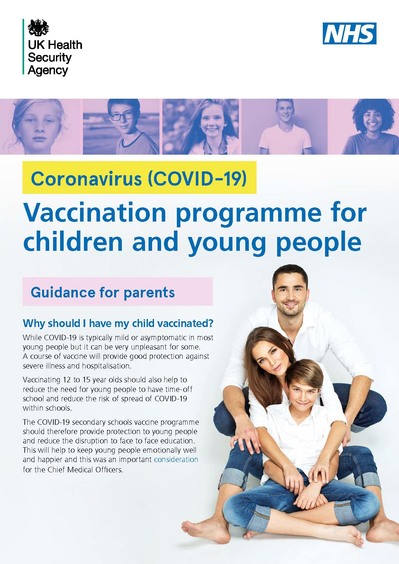 |
| 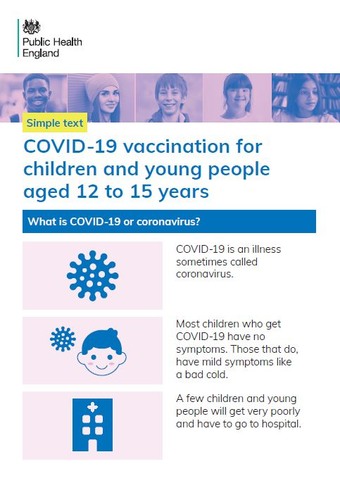 |
| 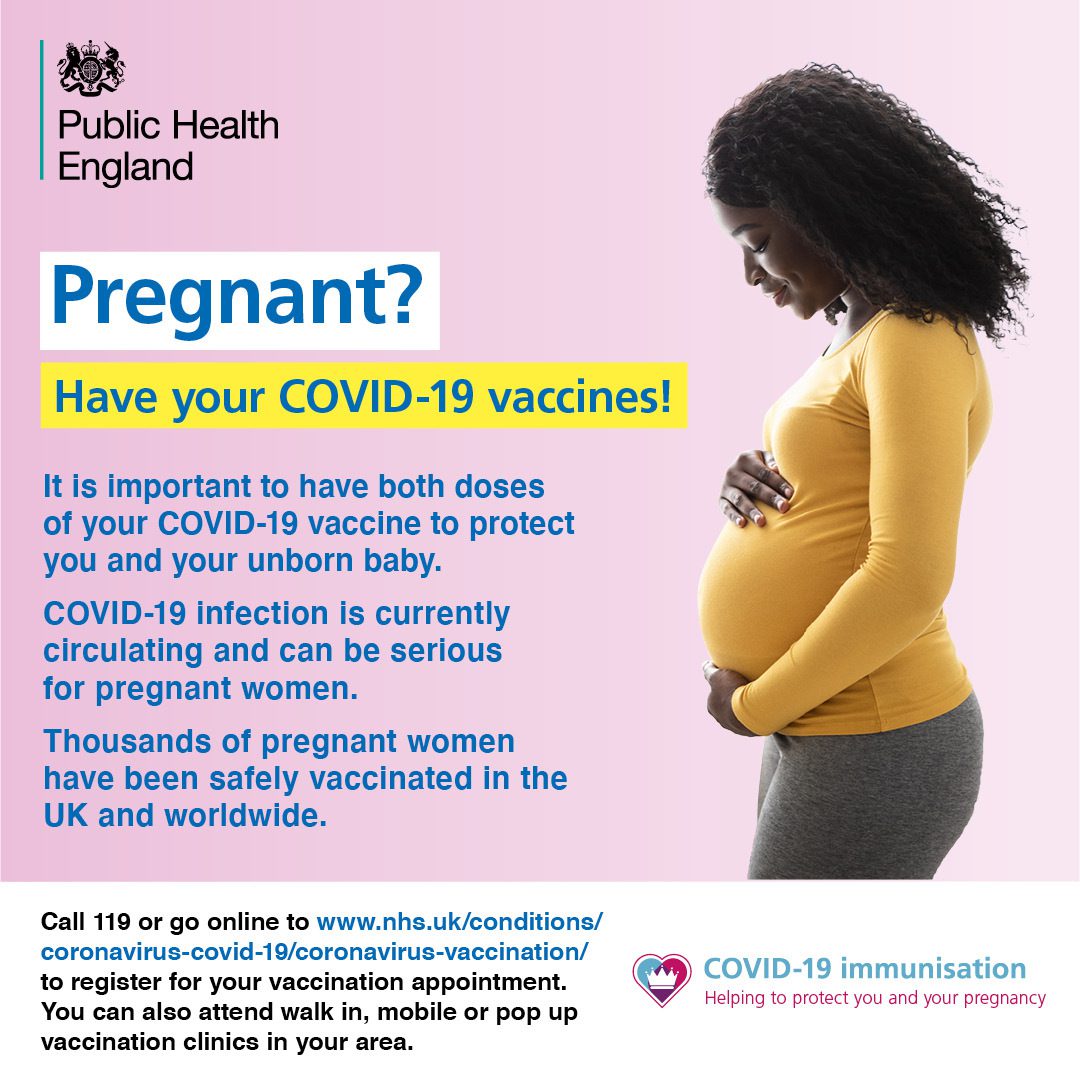 |
| 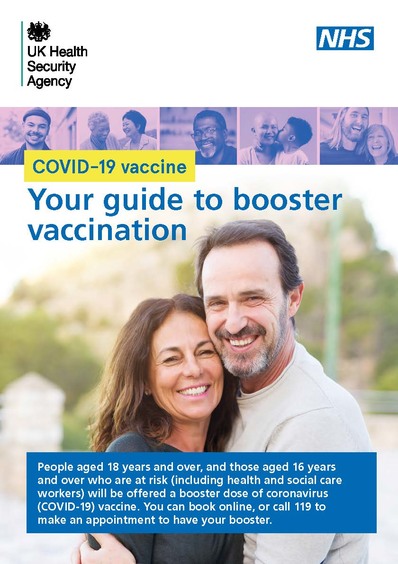 |
| 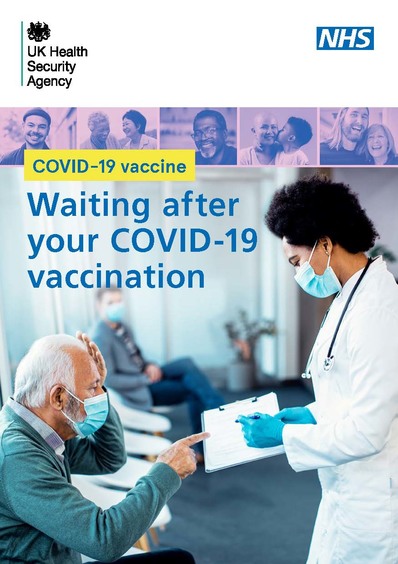 |
12-15 years old children consent form